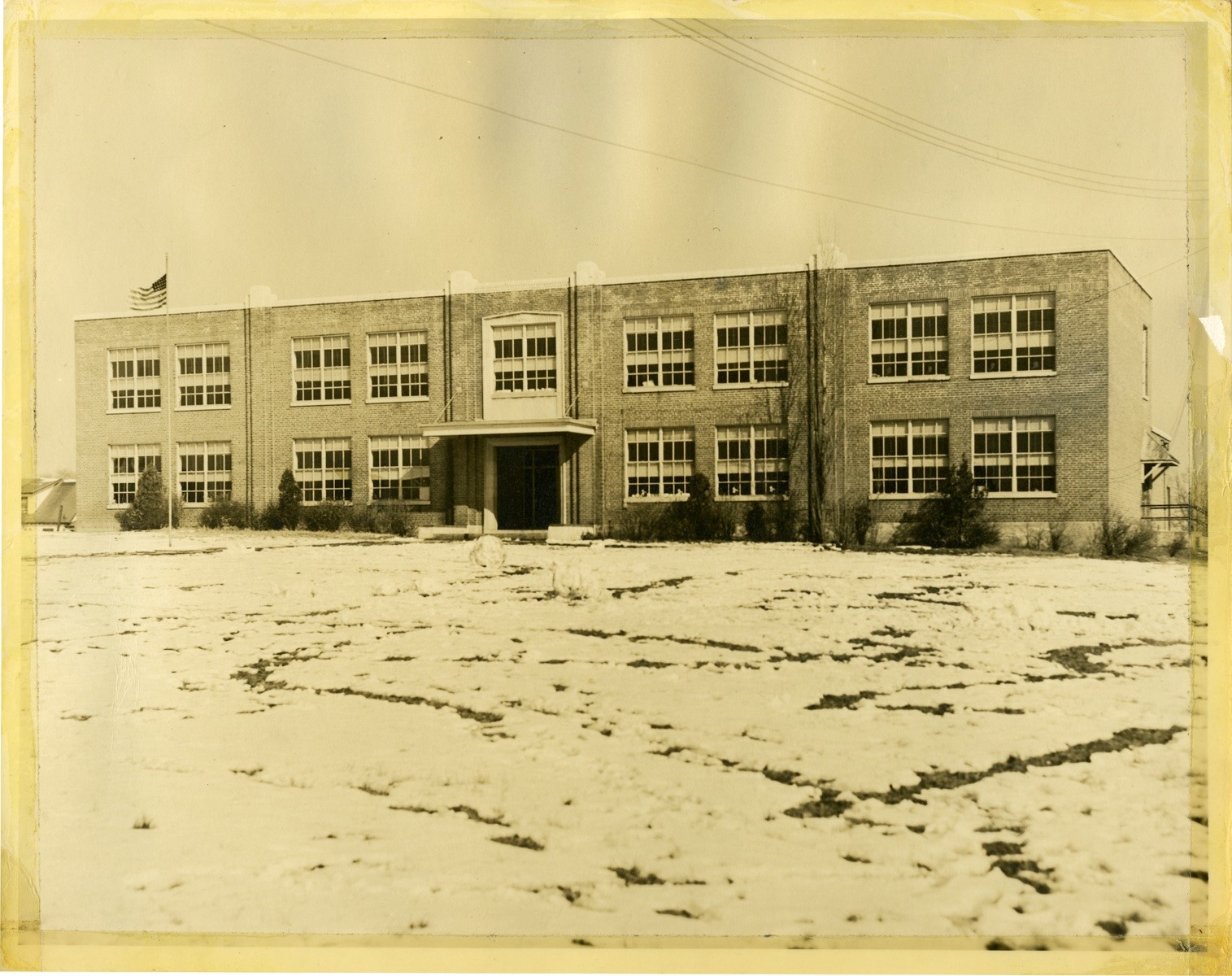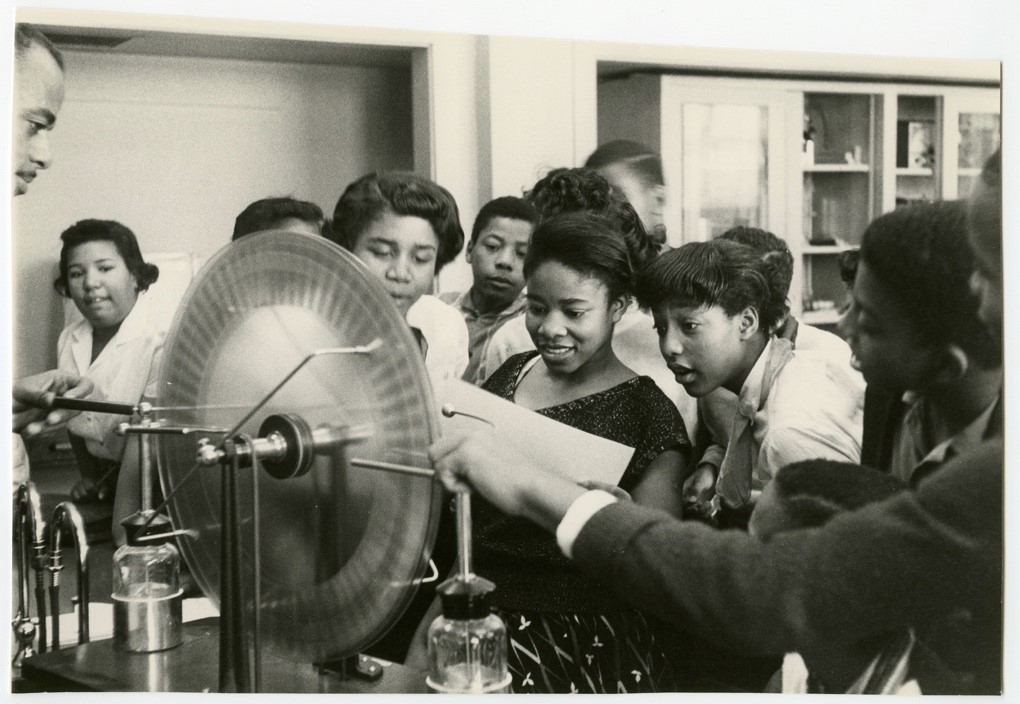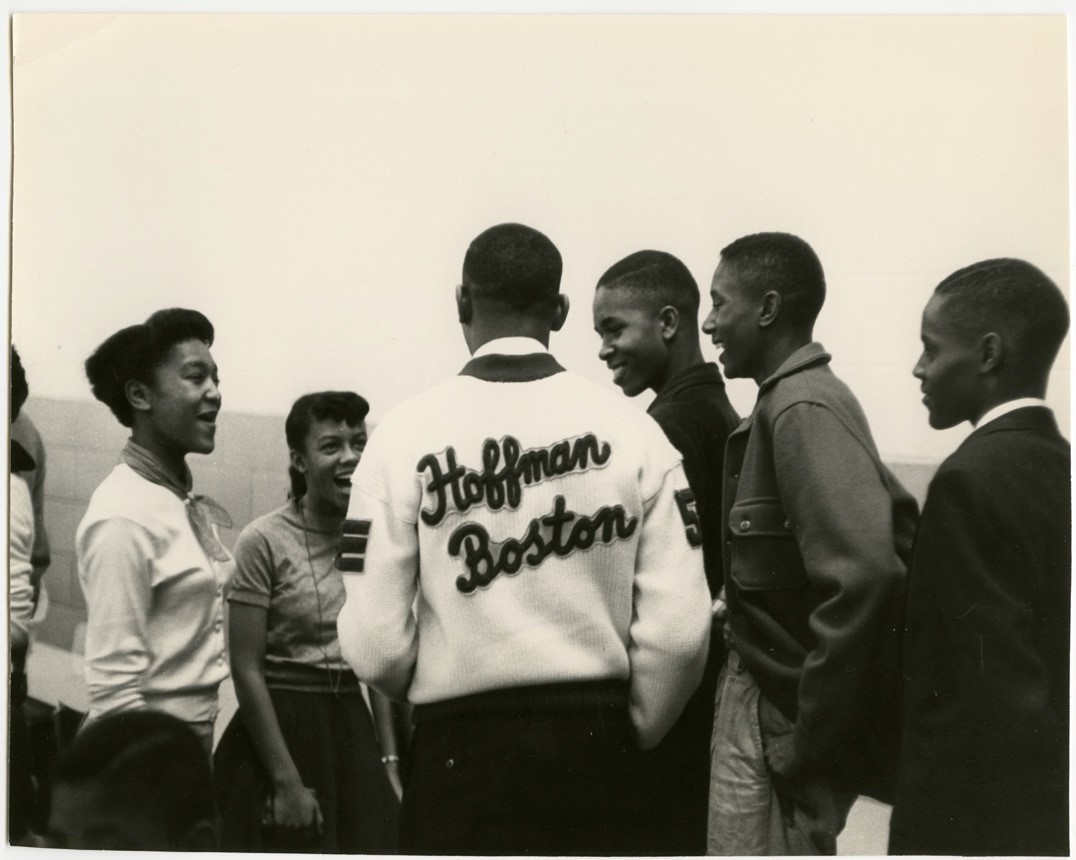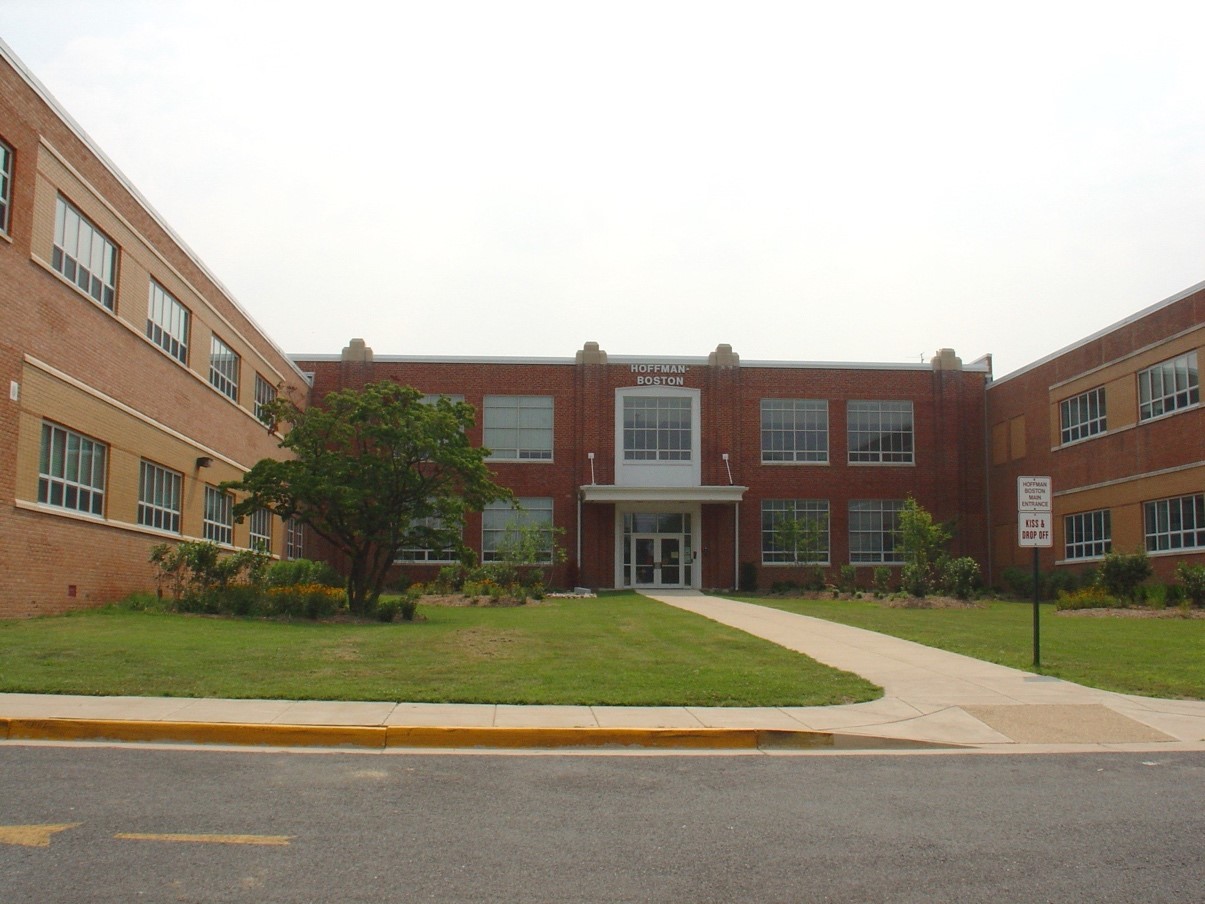Interview with Delores C. Downing
Many Arlington students are now returning to school, albeit in a very different manner than back-to-schools in the past. In this oral history interview, Delores Downing describes attending Hoffman-Boston in the 1940s.

Oral histories are used to understand historical events, actors, and movements from the point of view of real people’s personal experiences.
Downing attended Hoffman-Boston from the beginning of her schooling at age five to her graduation at 16, when she was the youngest of a four-person graduating class. In the interview, Downing talks about her time in school, businesses in her neighborhood, the construction of the Pentagon, and what it was like growing up in Arlington.
Downing’s parents also attended Hoffman-Boston, the first junior, and later senior high school, for African-American students in Arlington. Built in 1915, Hoffman-Boston replaced the Jefferson School, Arlington’s first school for African-American children, which opened in 1870.
Hoffman-Boston was named after Edward C. Hoffman, former principal of the Jefferson, and Ella M. Boston, former principal of Kemper, another school for African-American children in Arlington. Hoffman-Boston remained open until its final graduating class in 1964 when Arlington desegregated its school system.
Hoffman-Boston High School, circa 1950s. Part of the George Melvin Richardson Collection.
Narrator: Delores C. Downing
Interviewer 1: Sara Collins
Interviewer 2: Joan White
Date: May 28, 2003
Note: There may be some discrepancies between the audio and written transcripts due to edits and additional details provided by the narrator after recording.
Science demonstration involving a fan at Hoffman-Boston, circa 1950s. Part of the George Melvin Richardson Collection.
Sara Collins: Tell us about the school. What did it look like when you entered the front door?
Delores C. Downing: Open lobby, always clean. To the left and right were the classrooms. If you walked straight ahead there was the auditorium (which is more or less in the same area in the present time). The elementary area was downstairs, junior/senior high upstairs if I remember correctly. Very small school, but a very good school. I do have a picture, maybe I’ll send a copy to you one day.
Children from Green Valley (Nauck) and Halls Hill (High View) area were bussed to HB, due to segregation. We worked from used books passed down from the white schools, but our teachers being who they were worked extremely hard and made good use of books and all supplies and equipment that we did (did not) receive to the best of their knowledge to give us the best education we had. We have P.E. in the back of the auditorium (there was no gym). But so much togetherness in whatever we had to do. During my school years, there were three graduations; from 6th grade to 7th, 9th to 10th, and finally completion of the 12th grade.
SC: I think that would be very helpful.
Joan White: Since you spent all of your school days at Hoffman-Boston, can you tell me during your time there, did the school configuration change? When you were in the first grade, was it like two rooms, and as time progressed did it become larger, or did they have to make it change because of the number of students attending?
DD: When I attended you had specific rooms for each grade.
Group of Hoffman-Boston students stand talking. Student with his back to the camera wears a Hoffman-Boston letterman sweater. Circa 1950s. Part of the George Melvin Richardson Collection.
JW: So there were a number of rooms on the first floor to accommodate all of the elementary grades. Were those large rooms?
DD: They weren’t huge but they were comfortable rooms.
JW: Approximately how many students were in each room? I’m just curious as to how you all were in there.
DD: I don’t know but we were quite comfortable. We weren’t overcrowded. But I can’t give you dimensions on the size of the room. But then we used to have cloakrooms to hang our coats in. I’ll never forget, we had to memorize “The Night Before Christmas,” I think it was Ms. Burke’s class. On the cloakroom door, she pasted all the pages and from time-to-time, you would not stand in the same place, you would have to memorize that page. So even now I still know “The Night Before Christmas,” basically.
Hoffman-Boston Elementary School today. HB reopened an elementary school in 2000 in the Oakridge neighborhood of Arlington. Image courtesy of Arlington Public Schools.
This interview is part of the Center for Local History’s oral history collection, VA 975.5295 A7243oh ser.3 no. 183. Watch "Memories of Hoffman-Boston" to learn more about the Hoffman-Boston School.
The goal of the Arlington Voices project is to showcase the Center for Local History’s oral history collection in a publicly accessible and shareable way.
The Arlington Public Library began collecting oral histories of long-time residents in the 1970s, and since then the scope of the collection has expanded to capture the diverse voices of Arlington’s community. In 2016, staff members and volunteers recorded many additional hours of interviews, building the collection to 575 catalogued oral histories.
To browse our list of narrators indexed by interview subject, check out our community archive. To read a full transcript of an interview, visit the Center for Local History located at Central Library.



